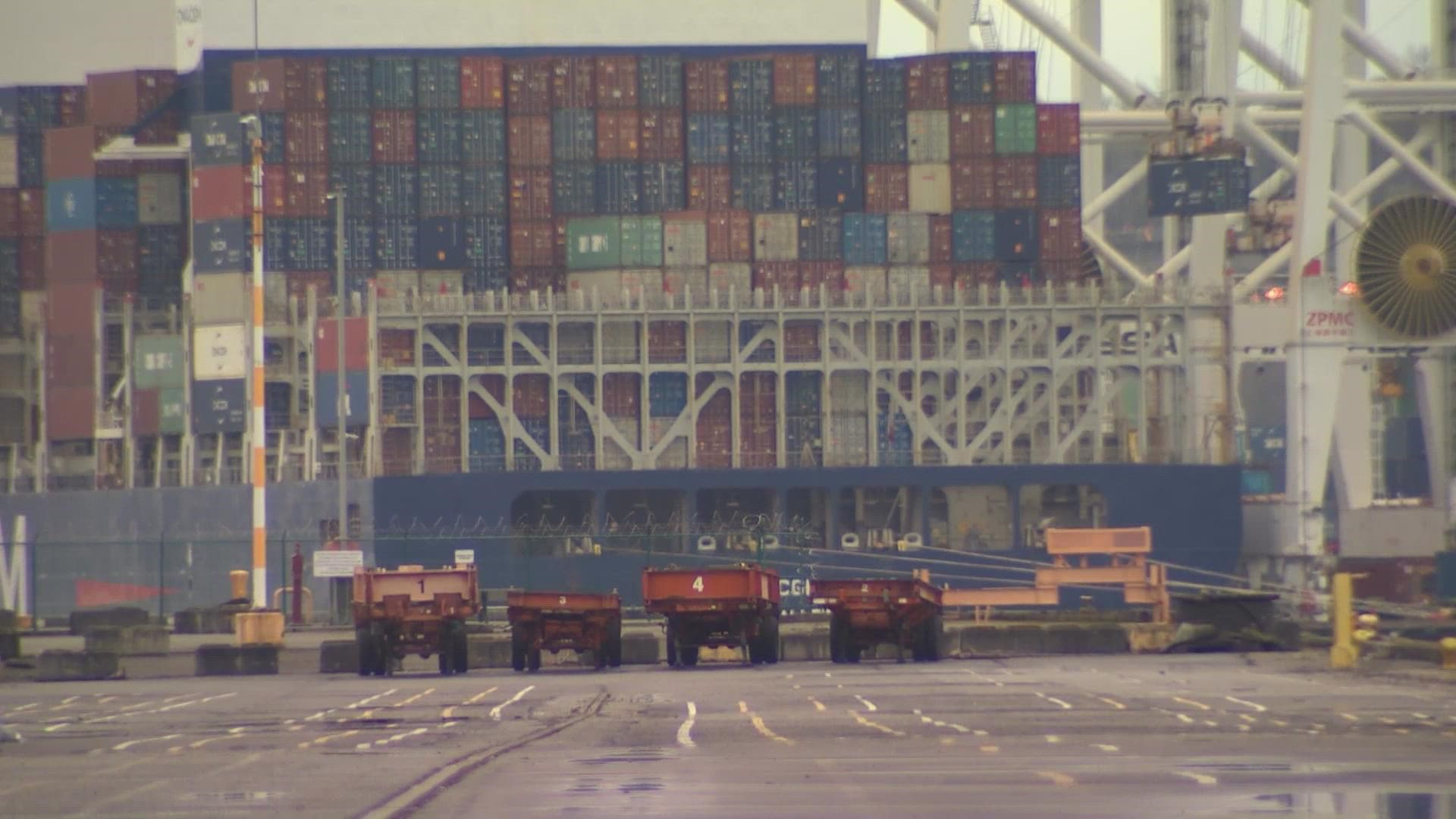SEATTLE — A new partnership will set aside a 49-acre pop-up site at Terminal 46 in downtown Seattle to store agricultural goods until shipping and allocate funding toward reimbursements to cover a portion of trucking or storage costs for growers, the U.S. Department of Agriculture said Friday.
The program between the USDA and Northwest Seaport Alliance will offer growers reimbursements between $200 and $400 per container.
The release said, "Congestion-induced impacts to vessel schedules and prioritization of returning containers empty to Asia have significantly raised barriers for exporting agricultural products in containers, resulting in lost markets and disappointed customers."
The USDA said it's led to a 30% decline in the export of agricultural commodities in the last six months of 2021 for the Northwest Seaport Alliance.
The backlog and congestion have led to problems for growers who ship their goods overseas, specifically that schedules are unpredictable. A company may expect it's going to ship out goods on a Tuesday and then find out that is no longer doable, requiring them to reroute their trucking schedules, coming hours from the port. That means when it's time to ship containers from imports back overseas, they often end up empty – a waste when there is high demand for American goods internationally.
"Five years ago it was pretty straightforward. You had an order, and you arranged your booking for it, produced for it, brought it to the port, put it on a ship and it arrived," said Anderson Hay & Grain Ocean Shipping Coordinator Laura Daniels. "Today, it's a lot more complicated. We still have our orders. We have great demand. We go book with the carrier and you get a schedule back, which we produce to, but that schedule is constantly changing and moving so what we thought we were going to ship, let's say four weeks ago, is actually just now shipping. So we're following the snowball of demand."
The partnership comes in connection with the Biden-Harris Administration’s Supply Chain Task Force efforts with state and local governments and builds on earlier efforts.
In a news conference Friday, officials said work is also underway on legislation to ban predatory shipping cost increases, and that lasting change will require significant infrastructure improvements.
"Hopefully it will allow us to streamline our production, so we have orders for 250 containers. Maybe we can truck 250 containers in the week we planned on it, rather than watching 125 of them move to next week and 50 of those move the third week out," Daniels said.
To learn more about the program, click here.

